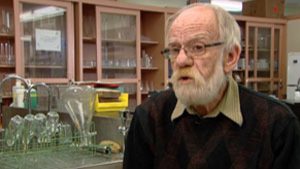Not sure what’s going on in Canada, but consumer confidence in food safety should be questionable.
 Leaked documents appear to contradict statements by the Canadian Food Inspection Agency’s top bureaucratd that oversight at meat processing plants in Alberta has not been reduced as the federal watchdog grapples with staff shortages and tight budgets.
Leaked documents appear to contradict statements by the Canadian Food Inspection Agency’s top bureaucratd that oversight at meat processing plants in Alberta has not been reduced as the federal watchdog grapples with staff shortages and tight budgets.
In a tersely worded release issued in the aftermath of this week’s allegations by meat inspectors that the frequency of some checks have been cut in half at facilities in the northern half of the province, CFIA-president-and-former-Guelph-squash-player Bruce Archibald said the union’s claims were false and unnecessarily undermined Canadian confidence in their food safety system.
But an internal strategy document obtained by the Calgary Herald shows the agency had plans in to reduce the daily presence of inspectors in plants and the frequency of some of their tasks by up to 50 per cent starting in early January of this year.
While inspectors would still visit plants that export to the U.S. every day to ensure compliance with that country’s standards, the strategy shows facilities that produced solely for the Canadian market would now only see an inspector three days a week.
“Processing group will not be able to complete work as per program design,” the document said.
“With reduced inspector presence at establishments, the CVS (compliance verification system) must be reduced.”
Agency officials did not respond to a request to interview Archibald about the apparent contradiction between his comments and the detailed strategy outlined in the December document that inspectors union president Bob Kingston says was implemented on January 5 as planned by CFIA managers.
“We have bent over backwards to be factually correct about what’s happening and our members get pretty upset when the head of the CFIA calls them liars,” Kingston said in an interview.
“This is not about protecting jobs, but about whether the agency has the resources it needs to ensure the safety of food on Canadian kitchen tables and store shelves.”
The controversy over the inspection cuts in Alberta – made as CFIA grappled with a $43.3 million reduction in annual budget for food safety and with the prospect of more financial pain next year – comes as the agency deals with a growing recall of products from one of the plants where oversight has been reduced in recent months.
 The agency’s inspectors were busy Thursday pulling potentially tainted turkey made by Lilydale Inc. from store shelves across the country, a week after warning consumers that chicken from the company’s plant in Edmonton could be contaminated with the same Listeria monocytogenes bacteria.
The agency’s inspectors were busy Thursday pulling potentially tainted turkey made by Lilydale Inc. from store shelves across the country, a week after warning consumers that chicken from the company’s plant in Edmonton could be contaminated with the same Listeria monocytogenes bacteria.
CFIA said the suspect products were produced on a range of dates, but officials indicated they all appear to have been manufactured on the same line.
The recalls were triggered by positive results from testing of swabs of equipment in the plant and finished product made within a specific time frame, the agency said.
Officials did not directly answer a Herald query as to whether a CFIA inspector was at the plant on all the days when the recalled product was manufactured.
But they did say an inspector was present on March 10, one of the production days in question, when checks were done before the line began operating.
Rick Holley, a food safety expert at the University of Manitoba who advised the government during the deadly Maple Leaf Foods listeria outbreak in 2008, said that recent spikes in listeria outbreaks in processed meats have made him concerned that the meat industry is slacking in its sanitation practices.
“If we let our guard down, I think we’re just asking for trouble,” he said.
Holley said there are five times as many food recalls due to listeria contamination this year than the year before. To come to that conclusion, he analyzed data on food recalls from the Canadian Food Inspection Agency and found that in the first three months of 2015, 44 per cent were due to listeria contamination.
Only 9 per cent of recalls during all of 2014 were because of listeria, he said. What concerned him most, he said, was that the listeria outbreak was largely coming from cooked meat and fish products, which means that the bacteria was probably introduced during packaging.
The CFIA boasted in its statement that the Conference Board of Canada has rated Canada’s food safety system number 1 out of 17 OECD countries. This statistic comes from a report co-authored by Sylvain Charlebois, a professor at the University of Guelph. Charlebois said that there is no magic number of food inspectors that will guarantee food safety.
Holly disagreed with his methods, and said it is difficult to compare information across countries.
Rick knows food safety.




